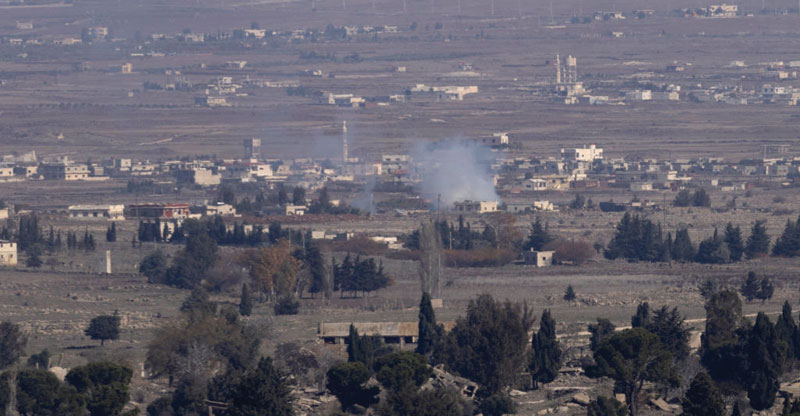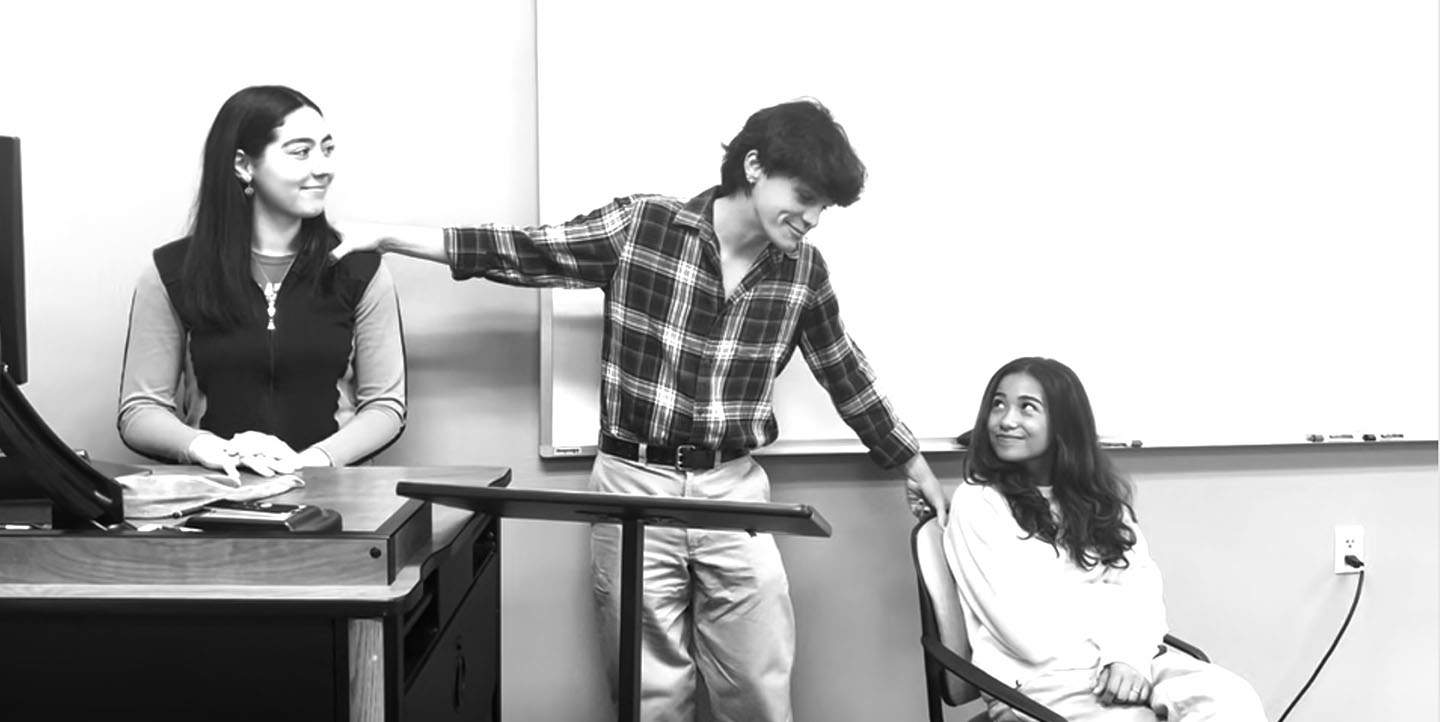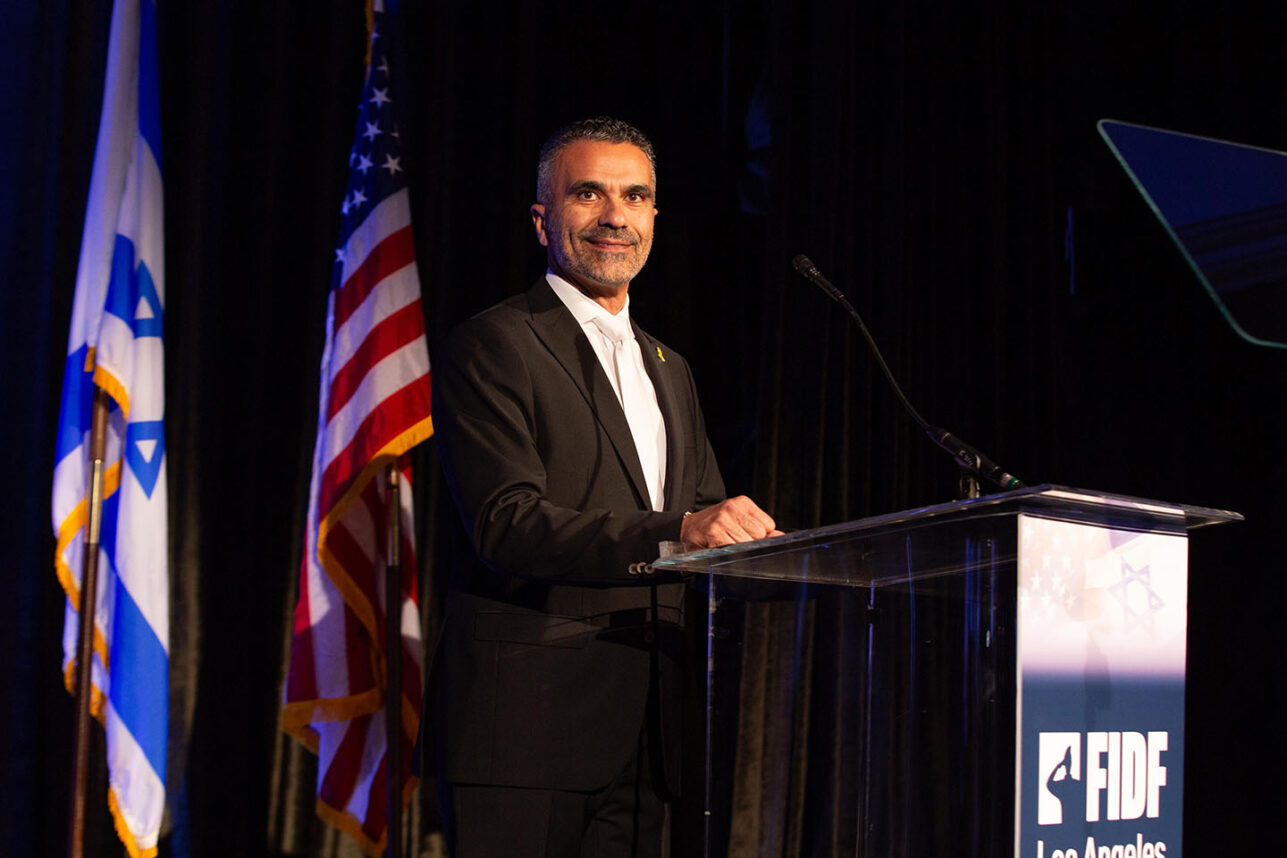Until Friday, I had never recited the shema next to a man wearing a kufi atop his head. Come to think of it, I had never seen anything but a kippah adorn heads in a Jewish synagogue. But this past Shabbat was an exception; not only did I see kufis, I saw keffiyehs and kente cloth woven into dashikis. The diverse religious dress, from headgear to full-body vestments, imbued Friday Night Live with a cross-cultural, multi-ethnic overtone that enlivened the experience but also created a self-consciousness among the 800 or so attendees.
A group of foreign scholars, who were visiting Los Angeles to study religious pluralism in America, attended FNL as part of a yearly tradition. Sinai Temple hosted the group at their famed Shabbat service in order to foster inter-cultural dialogue between Jews and the scholars representing 18 countries, from United Arab Emirates to Macedonia to Mexico. There was also a young man introduced from “The West Bank.”
Throughout the service, there was a tinge of nervousness in the air. The music was louder than usual. Craig Taubman sweat a little more. Rabbi Brian Schuldenfrei thoughtfully tried to pronounce each guest’s name correctly, but slaughtered most of them anyway. All eyes were on the visitors and I wondered how they were feeling as they experienced this lively, musical romp through the Sabbath. I couldn’t help but think, if this is the first or last time they ever set foot in a synagogue, is this a good representation of Judaism? What will they remember? What will they think about how we pray?
To shift the spiritual emphasis away from our obvious differences and focus on our shared humanity, Taubman improvised a harmony during “Hashkiveinu.” He invited several scholars up to the bimah to chant the word for “peace” in their respective languages alongside “Shalom.” Taubman’s clear favorite was the African “mirembe” and his confession that he’d be singing it in his sleep added levity and humor to the atmosphere. He also invited a local female pastor to lend her mellifluous voice to his Hebrew songs.
On a similar note, Rabbi Schuldenfrei sermonized about the culture of traffic in Los Angeles and how stalemate on the 405 would be less agonizing if we were kinder, more generous drivers.
By the end of the service, a sense of comfort and familiarity pervaded the temple and the singing became softer, soulful and more honest. If the scholars remember anything, let it be that a community of Los Angeles Jews warmly welcomed them.






















 More news and opinions than at a Shabbat dinner, right in your inbox.
More news and opinions than at a Shabbat dinner, right in your inbox.